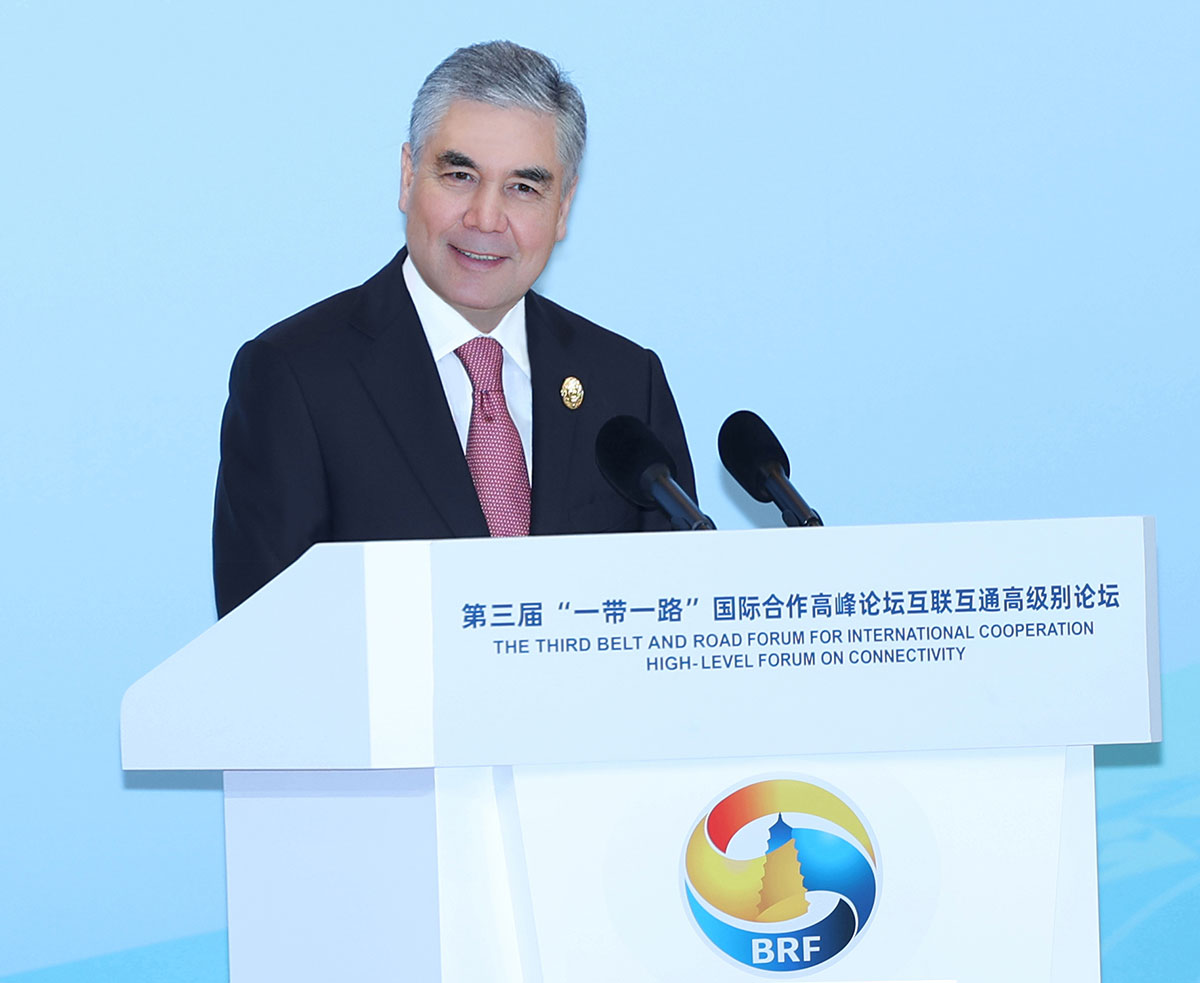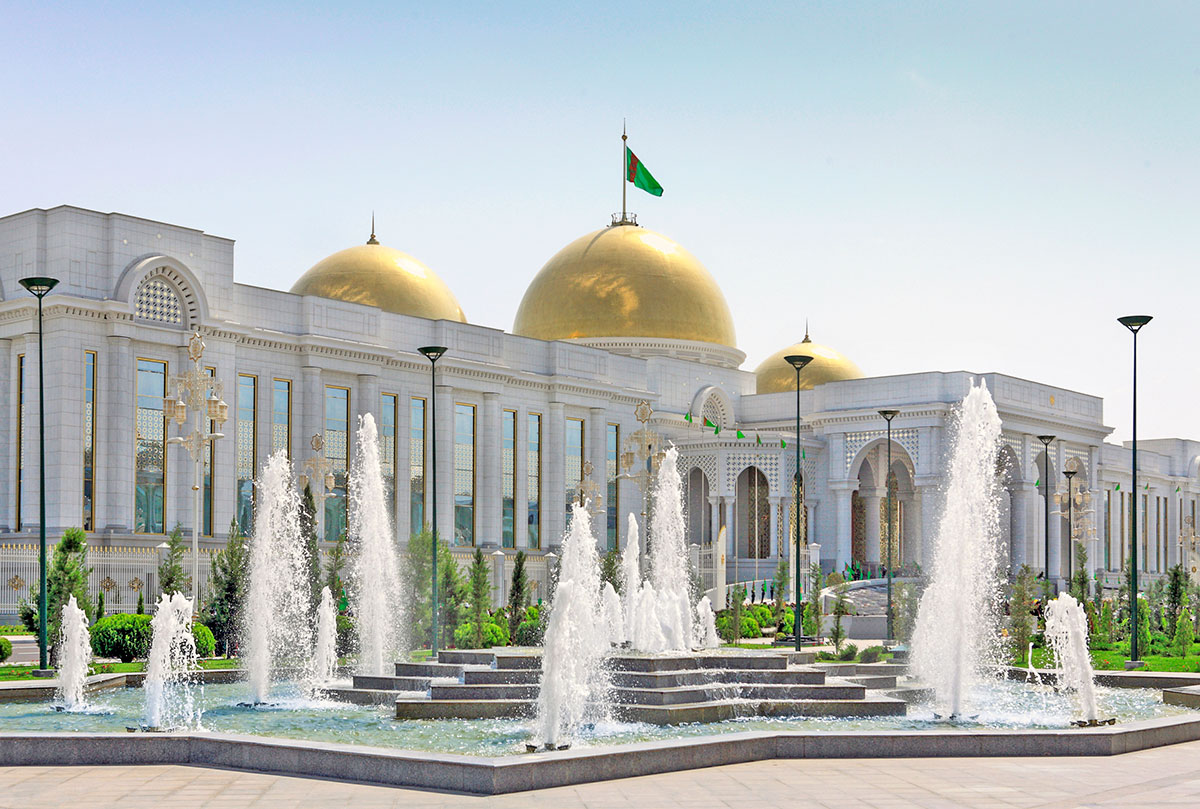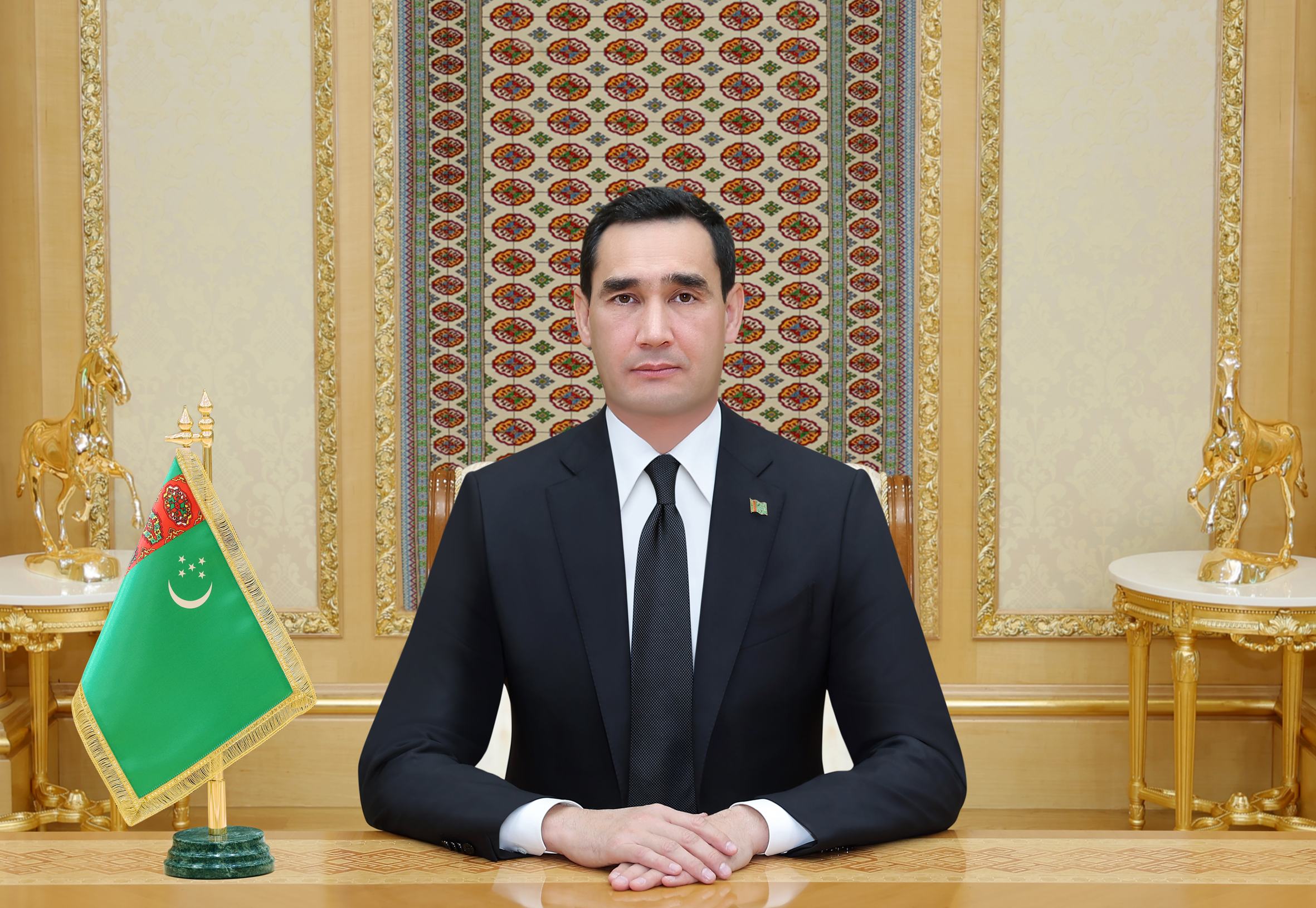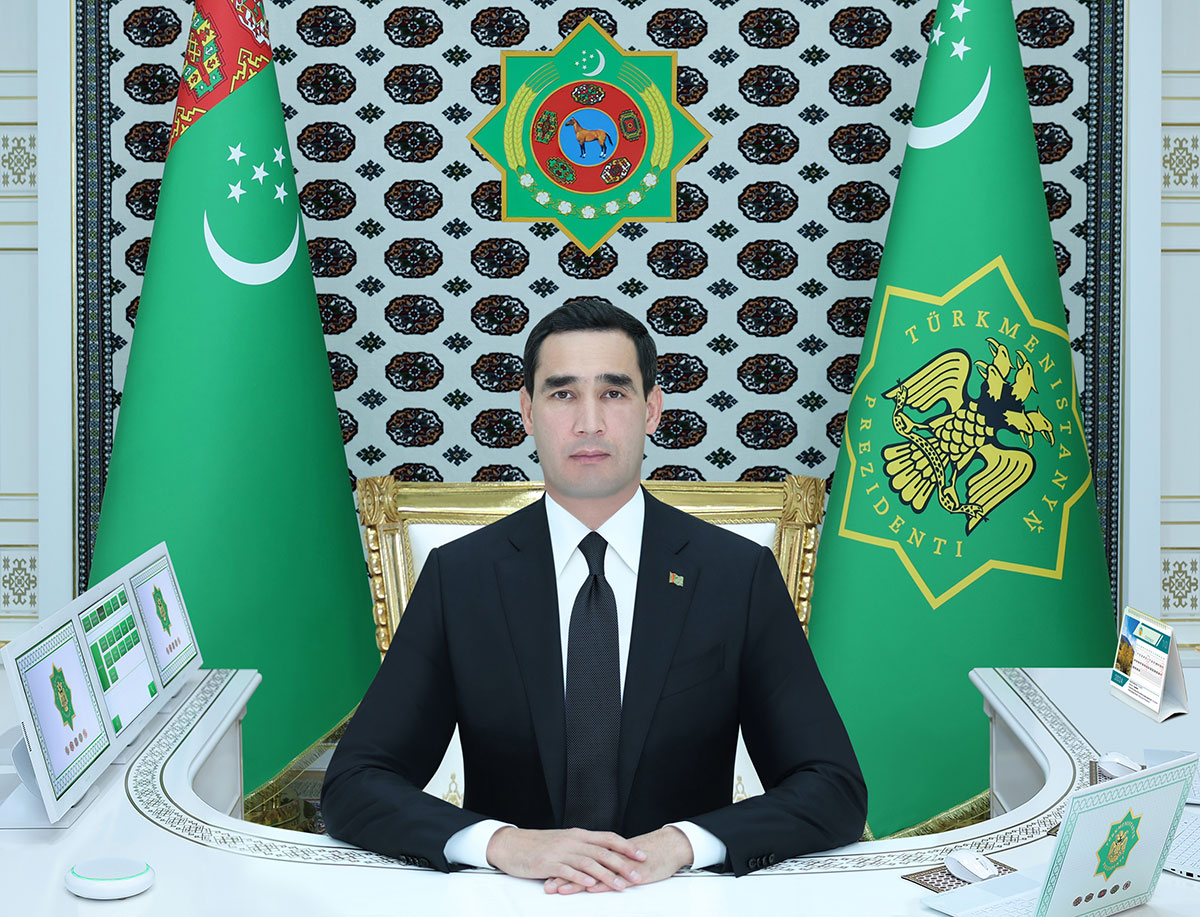Dear Mr. Chairman!
Dear heads and members of delegations!
First of all, let me express my gratitude to the Chairman of the People’s Republic of China, respected Xi Jinping, for the initiative to convene the 3rd “One Belt, One Road” Forum for International Cooperation, its excellent organization, cordiality and hospitality.
Holding this meeting is a highly relevant and sought-after event. Recent realities – the pandemic, increasing instability, decreasing trust and predictability – have negatively affected global economic activity, led to problems in interconnectedness, and reduced the degree of effectiveness of the implementation of plans and programs in sustainable development.
To overcome these negative factors, it is necessary to unite the efforts of states and international institutions, their solidarity in establishing a creative and constructive agenda based on goodwill, responsibility and foresight.
From this point of view, the content of the Turkmen strategy “Revival of the Great Silk Road” meets Turkmenistan’s ideas about the future of the geo-economic landscape of Eurasia, and also corresponds to the content of China’s strategy “One Belt, One Road”, where the main principles are equality, consideration and recognition of the interests of partners, mutual benefit, respect for the diversity of cultural and spiritual values. Important elements of the Turkmen approach are the depoliticization of cooperation, moving away from the one-sidedness of energy and transport flows in favor of their diversification and accessibility for broad international participation.
Reliance on the rich historical experience of friendship and good neighborliness between the Turkmen and Chinese peoples, the today presence of objective mutual interests allow Turkmenistan and China to successfully build up their partnership in the context of the implementation of these two strategies, their compatibility and mutual complementarity. Both of them are intended to give a powerful stimulus to economic development in Eurasia, uniting spaces from the Pacific to the Atlantic Ocean on modern criteria, forming interconnected production and technological cycles and industrial belts, helping to solve many social problems, improve the quality of life and well-being of peoples.
A striking example of this approach is the Turkmen-Chinese energy partnership.
The commissioning of a gas pipeline from Turkmenistan to China in 2009 marked the beginning of the formation of a new architecture of relations in the energy sector on the continent and opened up prospects for other states to join the project on a mutually beneficial and equal basis.
The same logic is followed by the implementation of another major international project – the Turkmenistan-Afghanistan-Pakistan-India gas pipeline.
Today we are working to expand the geography and volume of international supplies of Turkmen natural gas and electricity. Power transmission and fiber-optic communication lines have been laid from Turkmenistan to Afghanistan and Pakistan. There are a number of other major projects on the cooperation agenda in these segments.
Another important area is transport. Currently, our country, together with its partners, is creating an extensive network of transport and logistics infrastructure of a combined type along the East-West and North-South lines.
In the future, it will include transit corridors leading to the regions of the Caspian Sea, the Black Sea basin, and the Baltic. This seems especially relevant in connection with the implementation in Turkmenistan of large national projects in the transport and communication spheres, and the creation of new port infrastructure on the Caspian Sea.
In particular, we are talking about a transport corridor from China through the territory of Central Asia to the Turkmen coast of the Caspian Sea, as well as to Iran, the Near and Middle East.
This corridor can also be used in the opposite direction – to the Asia-Pacific region and the countries of South Asia.
Our efforts are aimed at fully unlocking the potential of transcontinental transportation by all modes of transport, including railways, roads, air travel, and the creation of logistics terminals at hubs, one of which could be the Turkmenbashi International Seaport. We are ready to provide its capacity for use in the interests of partners.
Coordinated transport diplomacy aimed at consolidating common efforts in improving the efficiency of international corridors and logistics systems is becoming increasingly relevant.
It must be said that Turkmenistan, being one of the initiators of the global dialogue in sustainable transport, has been taking consistent practical steps in this direction for many years.
The persistent, purposeful work of Turkmenistan was marked by the adoption by the General Assembly of six resolutions in the field of transport initiated by our country in recent years alone.
And here I would like to emphasize: Turkmenistan’s transport strategy keeps pace with modern trends and the objective needs of the world economy. And therefore, I am convinced, it meets the interests of the majority of states interested in creating an effective, stable and fair system in this key area.
One of the priority tasks of international cooperation of Turkmenistan is to achieve a reasonable balance between production activities and environmental protection, ensuring environmental safety.
Our understanding of the essence and meaning of the Green Silk Road is based on this.
In this context, we believe that Turkmenistan’s proposal to establish a specialized structure – the Regional Center for Technologies Related to Climate Change – is a coherent and timely step.
We are ready to provide all the necessary technical and organizational conditions for the work of the Center in the capital of our country – Ashgabat city.
An integral part of Turkmenistan’s environmental strategy is also the reduction and eradication of the negative consequences of carbon dioxide and methane emissions into the atmosphere. First of all, we are talking about a phased transition to the introduction and use of modern environmentally friendly and resource-saving technologies, especially in energy, industry and transport.
Our country is also actively pursuing international cooperation in the field of hydrogen energy.
We consider these steps of Turkmenistan as an important practical contribution to the creation of “green corridors” of cooperation, particularly within the framework of the “Revival of the Great Silk Road” and “One Belt, One Road” strategies.
Dear participants!
Interconnectedness in the economy, international exchange of technologies, experience, skills and techniques are objective trends in global development. They involve closer cooperation in production, the creation of integrated technological and digital platforms, and joint communication systems.
All this is destined to form a holistic and sustainable logistics of cooperation on a global scale, and not only from the technical viewpoint.
Today, in our opinion, the concept of political logistics is in demand. I see it as a multi-level system of interaction between states that share ideas and prospects for economic development and cooperation, free from politicization and ideological clichés, based on equality, mutual respect and consideration of each other’s interests.
Dear heads and members of delegations!
I have no doubt that the current representative and authoritative forum, which brings together envoys from dozens of states with enormous potential, is capable of giving the necessary impetus to this process and the achievement of its goals.
Thank you for your attention and wish you successful work!
(Beijing, October 18, 2023)







